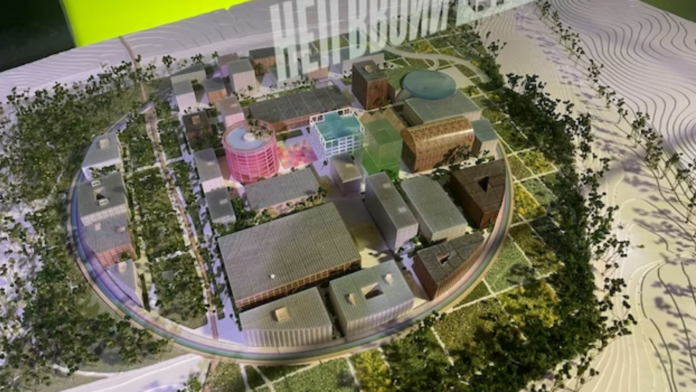Heilbronn, a town better known for its wines than its tech prowess, is emerging as Europe’s promising AI hub. This transformative shift traces back to an unexpected call Oliver Hanisch received in 2018. Having established himself in Silicon Valley, the thought of returning to Germany hadn’t crossed his mind. However, the influential Dieter Schwarz Foundation had grand plans for their hometown of Heilbronn and wanted Hanisch to spearhead them.
The Dieter Schwarz Foundation, steered by Germany’s wealthiest individual and ex-CEO of the Lidl supermarket chain, envisioned an ecosystem with European significance. Four years from that fateful call, Heilbronn boasts a startup hub and lays ambitious plans for an AI campus that aims to host 5,000 innovators in the near future.
The overarching aim? To establish a European powerhouse capable of contending with AI giants from the US and China.
Heilbronn’s proactive approach is also about preparing its corporate scene for the AI-driven future. Professor Reinhold Geilsdörfer, CEO of the Dieter Schwartz Foundation, emphasizes the need for regional companies to leverage AI to ensure their longevity and relevance.
The heart of this mission is the future Innovation Park Artificial Intelligence (Ipai), a state-of-the-art AI-focused facility. By 2027, this 30-hectare park is set to feature labs, a startup center, shared working areas, and other amenities, all in a pedestrian-friendly, eco-conscious setting. This park won’t be a walled garden either; anyone can step in, making it a public-friendly space to foster collaboration.
Moritz Gräter, Ipai’s CEO, underscores the park’s role in helping German corporations, especially the “hidden champions,” harness AI to address evolving challenges. With giants like Porsche, Audi, and BMW in the vicinity, and a solid academic network from Stuttgart and Heidelberg, Heilbronn is well-positioned for this AI revolution.
A pivotal player in this narrative is Aleph Alpha, an enterprise-focused AI company. In a symbiotic relationship, Aleph Alpha has aligned with Ipai, benefiting from the foundation’s academic network and infrastructural resources. Their shared goal is to establish an AI ecosystem in Germany that can stand shoulder-to-shoulder with global heavyweights like OpenAI.
Meanwhile, Hanisch and his team are nurturing young startups and innovators at Campus Founders. Located in the city’s “education campus”, it houses 170 startups and offers various programs and training. Here, aspirants are exposed to seasoned entrepreneurs, fostering collaborations and ensuring a vibrant future for Heilbronn’s tech scene.
This tech renaissance in Heilbronn also brings with it international players. For instance, OpenGrant, an AI-powered grant search engine, joined the Campus Founders’ AI program. For its founders, the city offers unparalleled access to the German market, and despite its quieter ambiance, it’s a business hotspot.
To amplify its mark on the tech map, Heilbronn has initiated Slush’d, inspired by Helsinki’s iconic tech conference. This event draws in global tech personalities, including Jonas Andrulis, CEO of Aleph Alpha. Andrulis envisions the AI campus as a catalyst for broader collaborations within Germany’s AI community.
It’s evident that Heilbronn’s AI scene is blossoming. Alumni from Aleph Alpha, like Michael Jancen-Widmer of Contrarian AI, vouch for the city’s potential, emphasizing its uniqueness in the European tech landscape.
Yet, with all the attention garnered during Slush’d, one can’t help but wonder about Heilbronn’s trajectory. Can this German town evolve into the significant European tech ecosystem it aspires to be? Only time will tell. However, if recent developments are any indication, Heilbronn’s future looks promising. And as the Slush’d after-party fades into memory, one thing remains clear: in Heilbronn, a new tech dawn is rising. Will the global community stay to witness its zenith?











